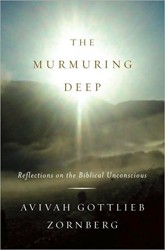This book is anything but an introduction. One cannot claim as an introduction a work that covers only those thinkers who contributed to the author’s thesis. The appropriate title is “Oliver Leaman’s Approach to Jewish Thought.”
Leaman begins his thesis with the now trendy post-modern approach of there being no set principles in Judaism. His rationale is the same as all other post-modernists who see lack of concordance as compelling proof of the impossibility of an objective truth. The freshness of his particular approach lies in the argument that, in fact, there are constants in Jewish thought. These constants are what he identifies as the recurring controversies that transcend time and remain at the heart of current philosophical and intellectual debate. However, the most interesting part of the book is the author’s conclusion. His thesis leads him to the radical idea that the ideal connection to Judaism is not the self-centered pop-Kabbalah cultural fast-foodism that characterizes the modern American Jew’s connection with his or her heritage. Rather, a true connection with a multifaceted religion, one that insures its continuity, is one that is based on interaction with texts and philosophies, coupled with healthy communal participation.





